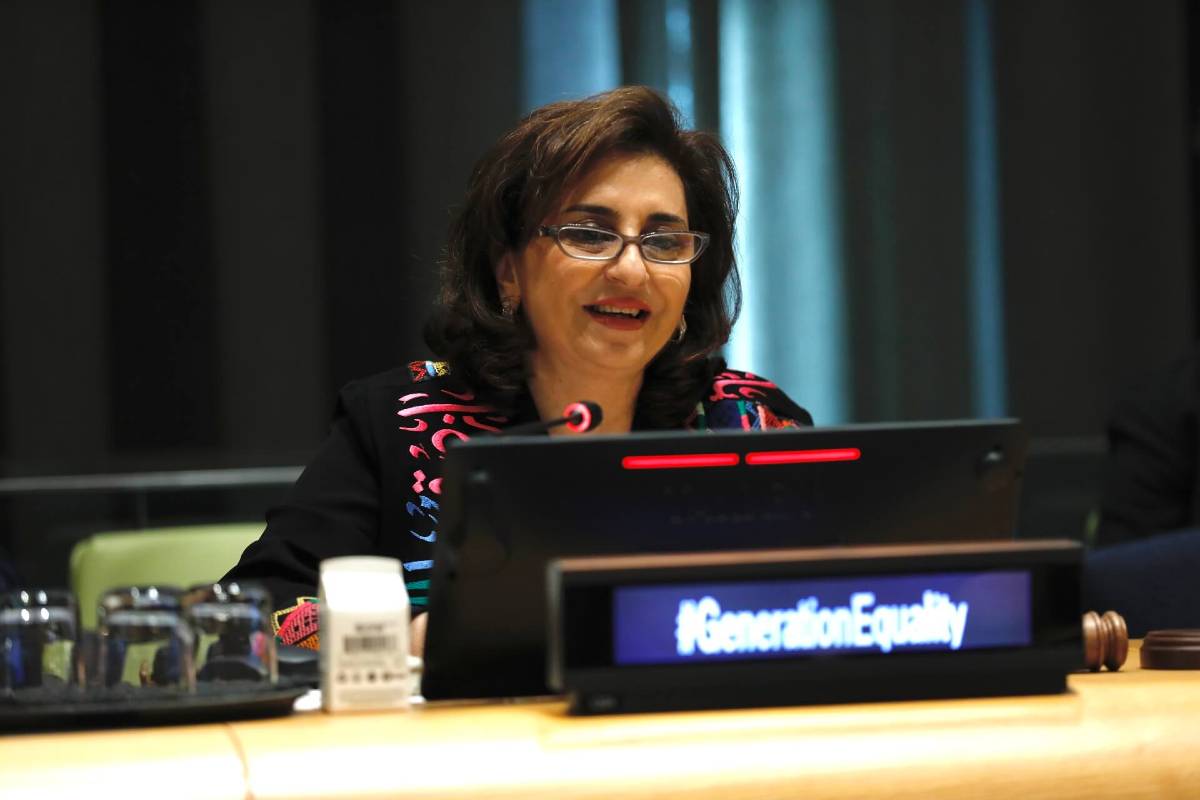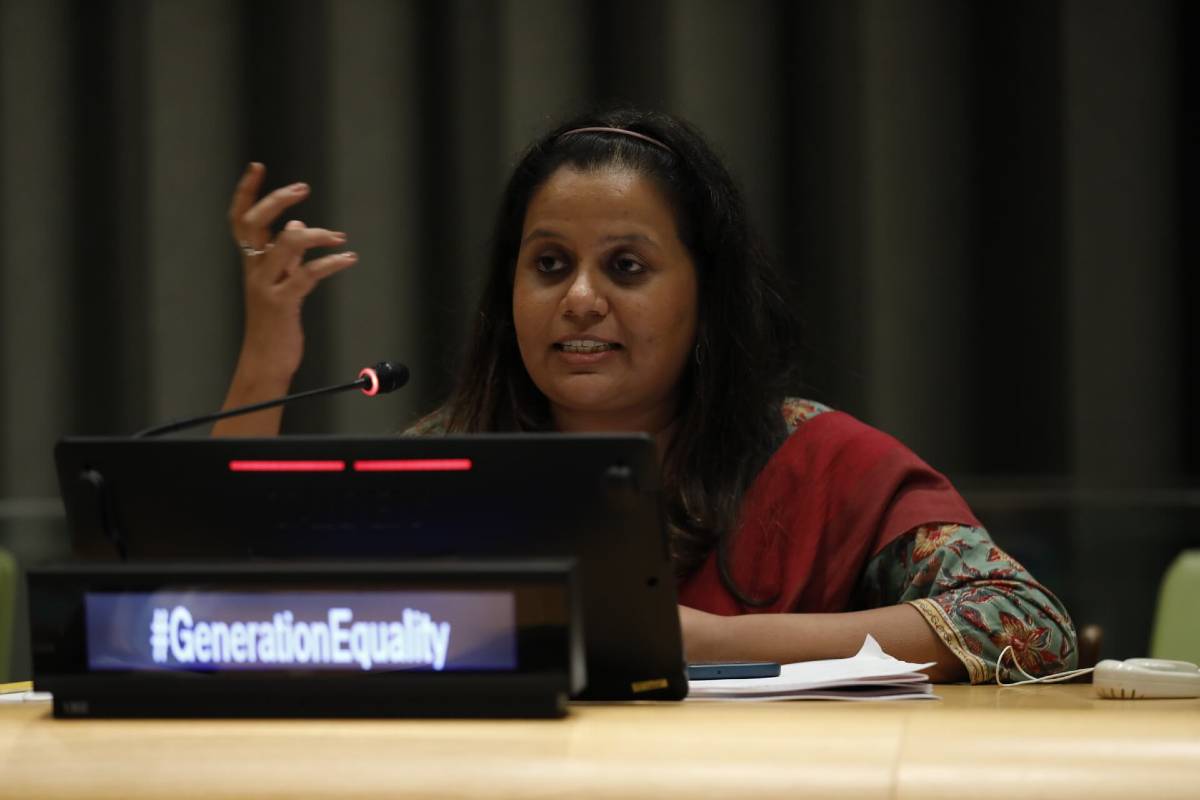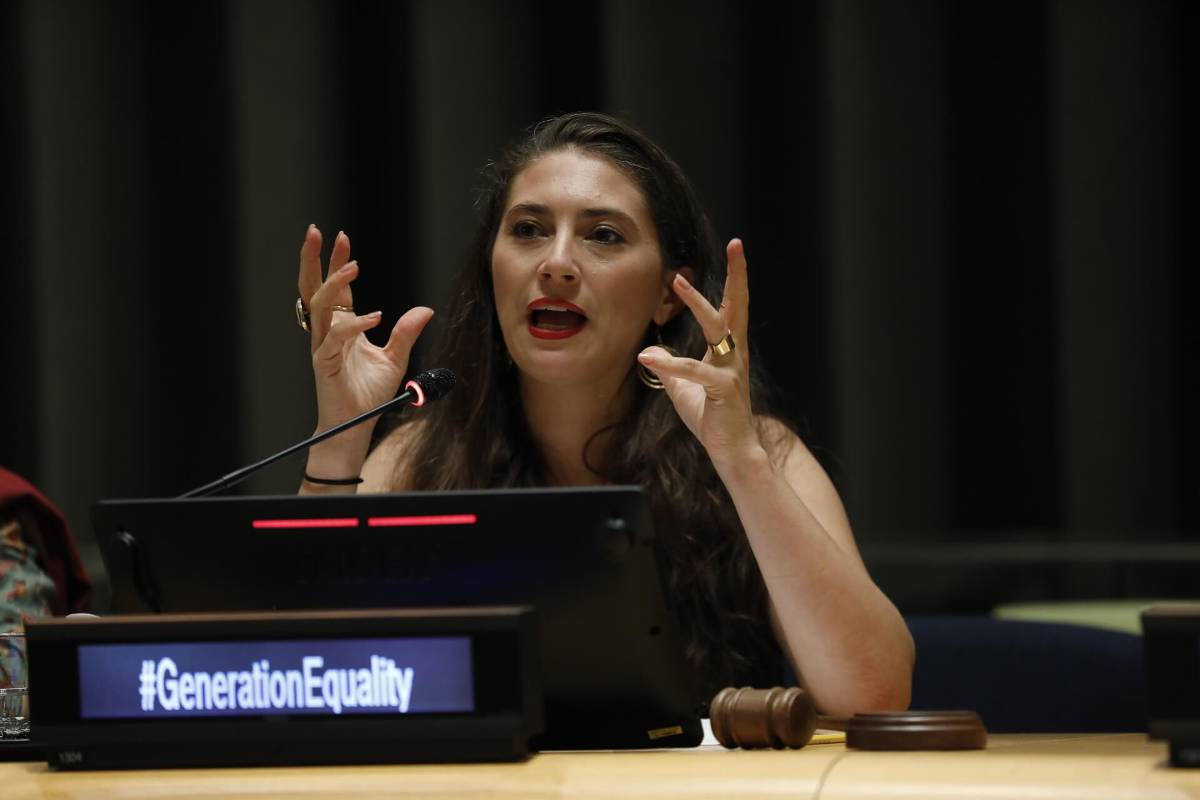
Generation Equality, the world’s leading initiative to boost investment and implementation of gender equality, marked its midpoint milestone at a summit with the co-leadership of the governments of Tanzania and Iceland and UN Women on 17 September 2023.
The event, which included more than 50 speakers from more than 25 countries in the areas of activism, policymaking, civil society, philanthropy, and the private sector was an opportunity to reflect on achievements and chart a way forward to fulfil the initiative’s ambitious commitments by 2026.
Unprecedented action for women’s rights
UN Women Executive Director Sima Bahous delivered remarks at the launch of the summit where she championed the unprecedented action young people, civil society, governments, the private sector, and philanthropists have achieved in just two years.
“Collectively, Commitment Makers have already spent almost 10 billion dollars on gender equality”, she said. “Across the world they have already initiated or are implementing 849 policies, 2,306 programmes and 3,649 advocacy initiatives.”
“In 2022, Compact signatories spent almost one billion dollars on women, peace and security and humanitarian action, reaching 22.1 million women and girls. Commitment Makers have reported a new total of 47 billion dollars in financial commitments, with 20 billion dollars already secured. And there is much more to come.”

The power of partnerships
One of the key takeaways from the Generation Equality midpoint event was the power of the initiative’s multi-stakeholder collaborative model, which has sparked an inclusive and intergenerational approach connecting grassroots projects with government leadership and investments.
Reflecting on the impact of Generation Equality, Feminist Manch Co-Creator Jeevika Shiv, rallied attendees encouraging them to consider how they could harness the momentum to galvanize more people, regions and countries with Generation Equality objectives.
“I want you all to take just a moment to think about where did Generation Equality disrupt something for you? Why are you here? What is it that shifted for you? For us it was relationships. It was organizing. It was building that transformation and trust to be able to challenge structures of power and bring justice”, she said.

Energized youth engagement
During the Youth Spotlight session, young feminists injected energy and a sense of urgency to ensuring their voices resonate among the world’s decision-makers.
“Young people have provided vision and thought leadership”, said co-founder of Young Feminist EU (European Union) and member of the Generation Equality Global Advisory Group Xenia Kellner as she moderated the session. “We have led in a transformative and inclusive way, challenged power structures. Seeing the whole Generation Equality process as a process, and not as a single action.”
Through Generation Equality, youth activists have gained access to forums like the UN General Assembly, the Commission on the Status of Women, and Women Deliver, which provide valuable opportunities for networking, learning, and resource sharing.
“Being an Action Coalition leader has been one of the most transformative as well as challenging opportunities I’ve encountered in this space”, said founder of Digital Grassroots Esther Mwema, the only youth-led organization in the Generation Equality Action Coalition on Technology and Innovation for Gender Equality. “The Generation Equality model sets a vision of what shared power looks like. It also shows that we’re all equal and relevant in the fight to achieve autonomy and dignity, no matter our gender identity, where we come from, or who we are.”
Despite these opportunities, challenges persist in ensuring meaningful youth participation which is often hindered by limited financial resources and capacity constraints.
“Access to funding isn’t just about money”, said Executive Director of the Youth Coalition for Sexual and Reproductive Rights Eunice Leyva Garcia, Commitment Maker of the Action Coalitions on Feminist Action for Climate Justice and the Bodily Autonomy and Sexual and Reproductive Health & Rights.
“It’s about the power dynamics and giving young people agency to make decisions. We need to address the power dynamics in funding processes”, she added.

Mobilizing investments in gender equality
While progress has indeed been made, many challenges remain. The Generation Equality Accountability Report has shown how mobilizing more investments in gender equality is needed to achieve the Sustainable Development Goals (SDGs) by 2030.
According to recent research, $360 billion per year is needed to achieve gender equality and women’s empowerment across key SDGs, including in the goal to end poverty and hunger.
Achieving gender equality will take 300 years at the current rate of progress, meaning countries will not reach the goal of achieving SDG 5 unless more funds are mobilized to accelerate progress.
Accountability drives results
One of the successes of Generation Equality is the strong reporting rate among stakeholders which points to high-quality engagement and a commitment to accountability and transparency.
Commitment Makers and Compact signatories provide annual progress reports, complemented by biannual assessments of Action Coalition blueprint targets, annual Compact Framework evaluations, and reviews to ensure core principles are implemented.
This year 42 per cent of Commitment Makers (compared to 26 per cent in 2022) responded to the 2023 accountability survey, covering 69 per cent of total commitments (compared to 31 per cent in 2022).
Two years following the Generation Equality Forums in Mexico City and Paris, the annual Commitments Reporting survey revealed that among the 1,211 commitments surveyed, 11 per cent have successfully achieved their objectives, 78 per cent are in progress, 6 per cent are in the planning phase, and only 2 per cent have not yet commenced.
Gender equality as an SDGs accelerator
At a time when women’s rights are under increased threats globally and progress has stalled and reversed in more than 30 per cent of SDGs, we must amplify and energize gender equality to accelerate gender-responsive sustainable development globally.
“Achieving gender equality is an important goal in and of itself and also critical for the achievement of the SDGs”, Iceland Prime Minister Katrín Jakobsdóttir said. “The world cannot wait 300 years to achieve this goal. This is a top priority for my government.”
The Generation Equality initiative, as showcased during the Midpoint Moment in 2023, stands as a beacon of hope and progress for gender equality.
Commitment Makers have invested billions and launched policies and programs demonstrating their dedication.
Partnerships have played a pivotal role by uniting grassroots and government efforts in an inclusive approach.
Youth engagement has injected energy and urgency into the movement.
Accountability remains key to ensuring transparency and progress tracking.
Challenges persist, notably the need for increased investments to meet gender equality targets by 2030.
Looking ahead, gender equality not only stands as a fundamental goal but also as a driver of broader sustainable development.
The Generation Equality initiative, driven by collective action and unwavering commitment, continues to pave the way to a more equitable world.
Watch the recording of the Generation Equality Midpoint Moment Event
